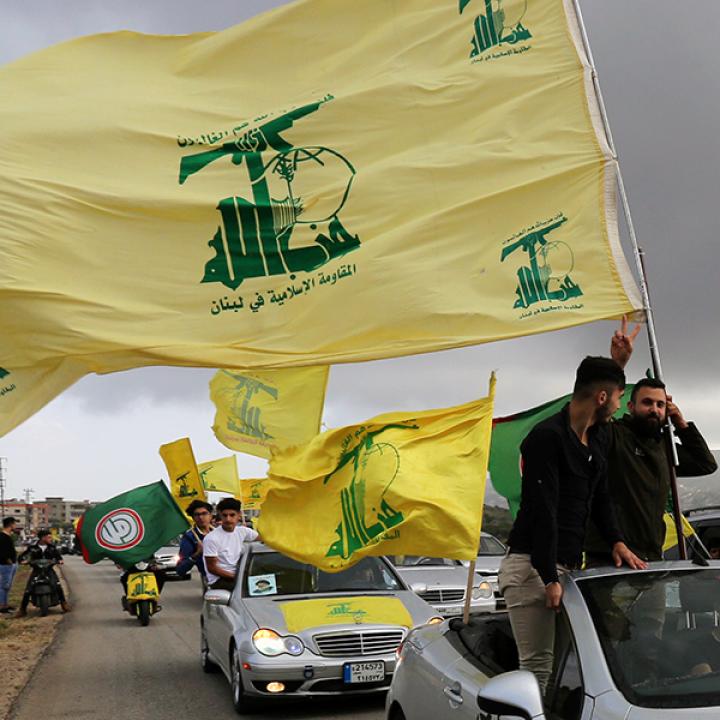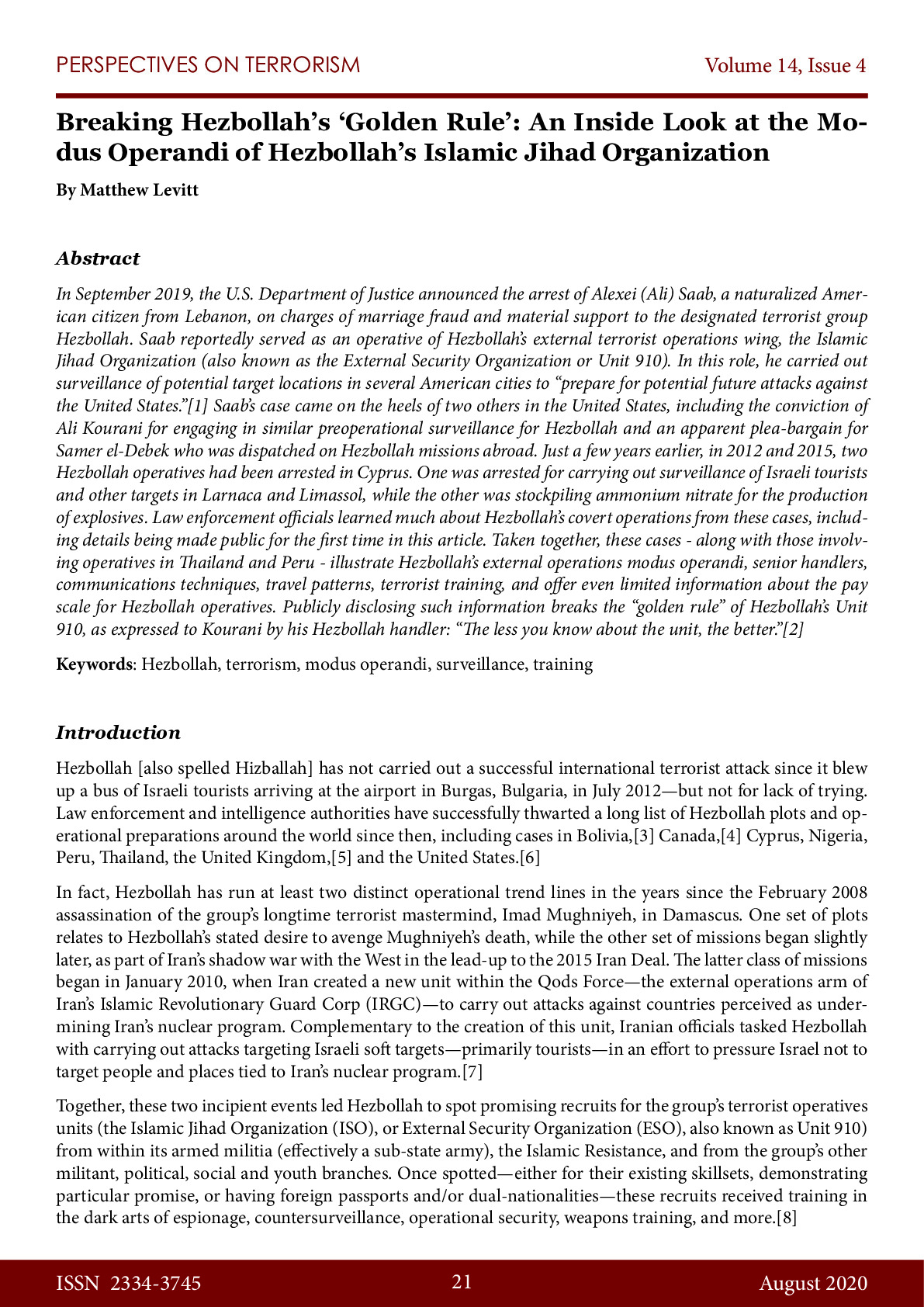

Many details regarding the modus operandi of the group's external terrorist operations wing are being made public here for the first time, including communications techniques, travel patterns, training programs, pay scale, and more.
The following is an abstract for an article originally published in the journal Perspectives on Terrorism. To read the full essay, download the PDF or visit the Terrorism Research Initiative website.
In September 2019, the U.S. Department of Justice announced the arrest of Alexei (Ali) Saab, a naturalized American citizen from Lebanon, on charges of marriage fraud and material support to Hezbollah. Saab reportedly served as an operative of Hezbollah’s external terrorist operations wing, the Islamic Jihad Organization (also known as the External Security Organization or Unit 910). In this role, he carried out surveillance of potential target locations in several American cities to “prepare for potential future attacks against the United States.” Saab’s case came on the heels of two others in the United States, including the conviction of Ali Kourani for engaging in similar preoperational surveillance for Hezbollah and an apparent plea bargain for Samer el-Debek, who was dispatched on Hezbollah missions abroad. Just a few years earlier, in 2012 and 2015, two Hezbollah operatives had been arrested in Cyprus: one for carrying out surveillance of Israeli tourists and other targets in Larnaca and Limassol, and the other for stockpiling ammonium nitrate with the intent of producing explosives. Law enforcement officials learned much about Hezbollah’s covert operations from these cases, including details being made public for the first time in this article. Taken together, these cases—along with those involving operatives in Thailand and Peru—illustrate Hezbollah’s external operations modus operandi, senior handlers, communications techniques, travel patterns, terrorist training, and even limited information about the pay scale for operatives. Publicly disclosing such information breaks the “golden rule” of Hezbollah’s Unit 910, as expressed to Kourani by his Hezbollah handler: “The less you know about the unit, the better”...
Matthew Levitt is the Fromer-Wexler Fellow and director of the Reinhard Program on Counterterrorism and Intelligence at The Washington Institute, and creator of its new Hezbollah Worldwide Activities Interactive Map.
Perspectives on Terrorism




